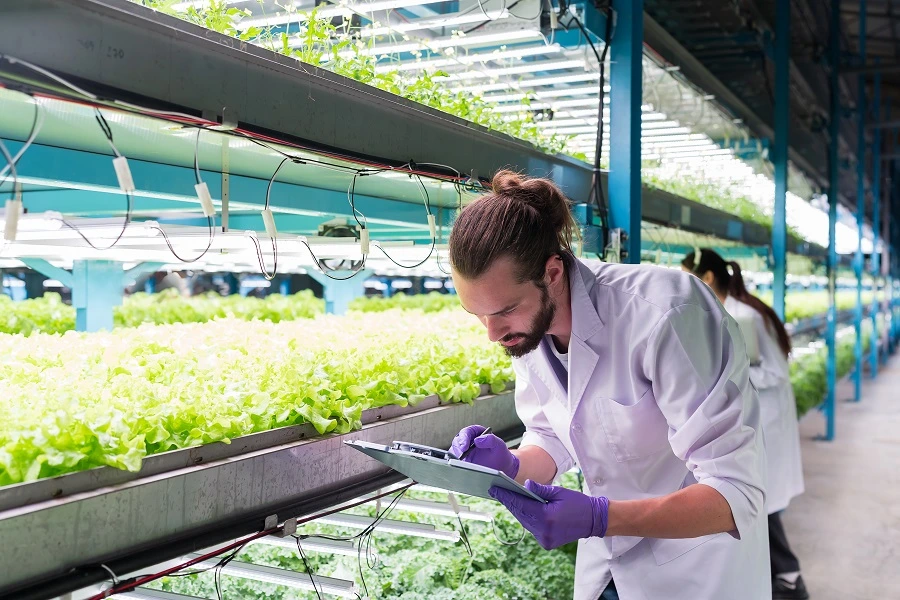Cultivated meat? EIT Food investigates European appetite for biotech foods
Key takeaways
- An EIT Food’s report reveals growing but selective acceptance of biotech foods in Europe, with 40% of consumers willing to try cultivated meat.
- Sustainability, animal welfare, and transparency drive acceptance, while trust, naturalness, and affordability remain key barriers.
- The report highlights the EU Biotech Act, which aims to support innovation in precision fermentation, cultivated meat, and gene-edited crops.
European consumers are becoming more open to trying food made using biotechnology, but the acceptance is selective, a report by EIT Food’s Consumer Observatory reveals. Nearly 40% of consumers are willing to try cultivated meat, while 43% are open to precision-fermented dairy products.
However, the acceptance levels dip for more experimental innovations, such as 3D-printed (23%) and genetically altered foods (26%).
Sustainability, animal welfare, and transparency drive acceptance of biotech-based foods, while perceptions of “unnaturalness” and low trust pose hurdles to mainstream adoption.
Price parity and accessibility are also important barriers since consumers expect these products to be as affordable as traditional foods.
The report comes as the EU’s Biotech Act gains momentum, signaling a regulatory shift that could accelerate innovation across precision fermentation, cellular agriculture, and genetic technologies.
“This report provides vital insights into how consumers perceive the EU Biotech Act and what it means for the future of our food system,” says Lorena Savani, director of thematic leadership for Biotech and Protein at EIT Food.
EIT Food believes biotechnology can play a “transformative role” in driving food innovation, strengthening climate resilience, and improving global health outcomes.
“Public trust and engagement are essential to unlocking this potential — meaning the report is a crucial step forward toward building a sustainable, secure, and healthy future for all,” says Savani.
Consumer skepticism
The report is based on a mixed-method study, combining qualitative discussions with 40 European citizens and a representative survey of 3,350 Europeans from six countries.
It describes European consumers’ relationship with biotech-produced foods as “complex.” Consumers are least open to trying “radically innovative” food, such as that produced by 3D-printing or genetically engineering.
However, less radical innovations are more inviting. Only 13% of consumers are “unwilling” to try vegetables from high-tech indoor farms. Consumers in France (52%) and Greece (56%) show the highest unwillingness to try foods produced by biotech.
Meanwhile, men (28%) are “somewhat” more open to trying biotech-produced food than women (23%). Younger and higher-educated consumers are significantly more willing to try biotech food, with nearly 34% of 18–34-year-olds willing to try compared with 17% of those aged 55 and above.
For cultivated meat, perceived “unnaturalness,” safety concerns, and lack of familiarity are barriers, but consumer acceptance increases when combined with plant proteins in hybrid products.
Precision fermented dairy has the highest acceptance among biotech-based foods, driven by sustainability and animal-free nutrition associations. For 3D-printed foods, consumers are skeptical about perceived artificiality and low relevance to daily diets.
 Only 13% of Europeans are unwilling to try vegetables from high-tech indoor farms.
Only 13% of Europeans are unwilling to try vegetables from high-tech indoor farms.
Increasing consumer acceptance
The study aimed to understand how European consumers perceive and accept biotechnology in food and agriculture. It highlights several key factors that impact consumer acceptance of biotechnology in food.
“Acceptance depends mainly on four factors — the perceived effectiveness of the Biotech Act in addressing food challenges, its fairness toward consumers, farmers and small businesses, the trustworthiness of EU institutions, and whether it feels urgent and necessary. Together, these factors explain nearly half of citizens’ acceptance levels,” reads the report.
Consumers who follow healthier and more sustainable diets are generally more likely to support the Biotech Act, showing that personal diet preferences aligning with the policy’s aim positively impact perception.
Trust and transparency are important, and consumer confidence increases when scientists, regulators, or independent institutions communicate clearly about the safety and benefits of biotech-based foods.
“Despite mixed feelings about the impact of biotechnology as a development, the vast majority of respondents see at least a ‘moderate’ positive impact of the Biotech Act on the European food system,” says the report.
Toward a biotech-driven future
The EIT Food Consumer Observatory stresses that the Biotech Act’s success depends on trust, fairness, and clear results.
It recommends policymakers focus on familiar biotech examples, support farmers and small businesses, and keep oversight transparent and independent.
“The Biotech Act can earn broad public backing if it demonstrates real impact, distributes benefits fairly and communicates its progress clearly — turning public neutrality into confidence in Europe’s biotech-driven food future,” the report adds.

















